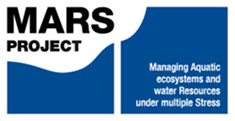Storyline - Techno World
The Techno World storyline is based on a scenario of high greenhouse gas emissions and rising global temperatures (Representative Concentration Pathway 8.5) in combination with a strong, carbon-based global economy in which many currently pressing social concerns, such as inequality and population growth, have been ameliorated (Shared Socio-Economic Pathway 5). The Techno World storyline features a future world with the following features:
Economy
In the Techno World, the global economy is strong and growing. Governments worldwide (in the vast majority) prioritise this economic growth and the creation of financial capital, supporting innovations in technology, expansion of businesses and the opening up of new markets. This growth is positive socially, and is accompanied by a rising quality of living conditions and decreases in global inequality.
Energy
Industry is growing, and people are getting wealthier and consuming more, so Techno World has a high demand for energy. This demand is met in whatever is the most cost efficient way in the short term. Newer technologies like hydropower and biofuels are further developed, but so is the use of fossil fuel. Better technologies mean previously inaccessible gas, oil and coal stores can now be exploited, and so CO2 emissions increase.
Environment
In Techno World, there is a broad consensus between government officials and business leaders that environmental regulation is economically inefficient and hinders development. Governments and international organisations tend to focus their eco-activity on win-win policies that improve economic as well as environmental performance (like energy efficiency), but environmental policies without an obvious financial benefit are weak.
Members of the public are concerned about the environment, andTechno World campaigning charities and non-governmental organisations are well funded, but these tend to focus most on popular issues (such as local green spaces). Less visible or lucrative environmental goods, or those that require integrated regulation (such as river-basin management) are neglected.
Policies
As we move towards a Techno World future, existing international agreements that protect the environment are either not renewed when they expire or significantly weakened during reform. International agencies are focused on stimulating economic growth, and international law prioritises removing trade barriers, which reduces national governments abilities to implement strong environmental policies.
By 2060, government intervention to protect ecosystems is virtually nil. The few policies that do exist tend to focus on the recreational value of “nature” as something for humans to enjoy.
Water Management Strategies
The primary focus of water management in theTechno Worldis to benefit humans. Freshwater is seen primarily as a commodity that is necessary for human health and economic development, and policies focus on having access to water for drinking, agriculture and industry.
Watercourses are primarily managed to reduce hazards to humans like floods, droughts or health risks. These aims tend to be met by technology and engineering like dams, sluices or floodgates. Management thinking is focused on the short term, with little attention given to ecological health and long-term sustainability.
Further reading
MARS deliverable:
Faneca Sanchez, M. et al. (2015). Report on the MARS scenarios of future changes in drivers and pressures with respect to Europe’s water resources. Part 4 of MARS Deliverable 2.1: Four manuscripts on the multiple stressor framework. (Download report, 15mb)
Other websites:
SSP Database (Shared Socioeconomic Pathways) - Version 1.1 (External website)
IPCC Data Distribution Centre (External website)



